Random
Intro to the Avant-Garde: A Secondary Materials Primer
Or, a recommended reading list for those who wonder where to begin.
As with any field of study, entry points abound.
With that in mind, my objective here is not to be comprehensive but rather to suggest a limited set of key texts that should help readers familiarize themselves broadly with the critical conversation surrounding the historical Avant-Garde. In the interest of symmetry, I offer ten books and ten articles, with a few supplements along the way.
One of the inherent problems of studying the Avant-Garde is its interdisciplinary nature, which could make it seem overwhelming given the vastness of its reach: far beyond typical artistic areas. Cecilia Novero’s recent book Antidiets of the Avant-Garde: From Futurist Cooking to Eat Art, and Alastair Brotchie’s A Book of Surrealist Games
are prime examples. Also, the overlap with Modernism makes any conversation about the A-G seemingly inseparable from a conversation about Modernism, which brings a whole host of other issues to the table. Don’t let either obstacle hamper you. For the sake of focus, I have limited my suggestions to texts that specifically address the A-G in its general (leaning toward literary) sense, which means I omitted a few really great books that focus specifically on, say, music, or that focus primarily on Modernism.
Oh, one last thing…keep in mind, what follows is a list of secondary materials: writing about the Avant-Garde. In the not-too-distant-future, I intend to produce a companion list of primary materials: writing from the Avant-Garde.
Since it’s likely I left out your favorite book on this subject, additions to the list are welcome in the comment minefield.
Books, listed in descending order according to American publication date
Roger Shattuck
The Banquet Years: The Origins of the Avant-Garde in France – 1885 to World War I
(Random House, 1968)
Shattuck champions Alfred Jarry, the wildman who conjured up ‘Pataphysics which is one of the least written about but most significant A-G concepts. For a fantastic explication of ‘Pataphysics, check out Christian Bök’s ‘Pataphysics: The Poetics of an Imaginary Science. (And if you find yourself in New Orleans at the end of the month, I’ll be presenting a paper at the International Deleuze Studies conference on the connection between Deleuze & ‘Pataphysics.)
Along with Jarry, Shattuck makes a case for the importance of Rousseau, Satie, and Apollinare’s contribution to the rise of the A-G. A most interesting foursome, indeed. This book skews toward biography, and seems to be written for a general audience.
Hans Richter
Dada: Art and Anti-Art
(Thames & Hudson, 1978)
“Dada not only had no programme, it was against all programmes. Dada’s only programme was to have no programme.”
Richter was in the mix, which makes this firsthand account a very interesting read. Some may suggest the more recent essay collection Dada: Zurich, Berlin, Hannover, Cologne, New York, Paris edited by Leah Dickerman, which would be a great addition to or companion to Richeter’s book. I have also heard good things about Marc Dachy’s recent book, Discoveries: Dada: The Revolt of Art
, but I haven’t read it. I also haven’t read David Hopkins’s Dada and Surrealism: A Very Short Introduction
, although I have read other books in that series that I found useful. At any rate, I recommend Richter’s book because of its historical proximity to and personal connection with the Dada movement.
On a side note, Ubu Web has a good collection of his films, if you’re interested.
Renato Poggioli
The Theory of the Avant-Garde
(Harvard University Press, 1981)
“…the avant-garde…functions as an independent and isolated military unit, completely and sharply detached from the public, quick to act, not only to explore but also to battle, conquer, and adventure on its own…”
So, yeah, Poggioli makes the military connection. He also outlines what he considers to be the four stages in the psychology of A-G movements: activism, antagonism, nihilism, agonism. In many ways, this is the book that paved the way for the larger theoretical conversation.
Two interesting essays to read in conjunction with this book, but which I didn’t include in my ten must-read essays below, would be Per Bäckström’s “One Earth, Four or Five Words: The Peripheral Concept of ‘Avant-Garde’,” and Robert Archambeau’s “The Avant-Garde in Babel: Two or Three Notes on Four or Five Words,” both published in Action, Yes.
Peter Bürger
Theory Of The Avant-Garde
(University of Minnesota Press, 1984)
If there’s one book that stands as the touchstone in the field, this is probably it. The “Foreward” by Jochen Schulte-Sasse is also a must-read. And really, if you’re gonna do it right, you should probably first check out the Verso Radical Thinkers edition, Aesthetics and Politics, which collects materials by Adorno, Benjamin, Bloch, Brecht, and Lukacs. That book will give you a good strong grounding in the debate that Bürger’s text takes as a starting point.
For Bürger, the A-G arises from a desire (or, I suppose he’d say need) to reconnect art and politics, after what he considers the detrimental force of l’art pour l’art. For him, the A-G began and ended with the big three: Futurism-Dada-Surrealism. Compare his position to Poggioli’s, wherein the A-G began with Romanticism and feasibly continues to persist today, and you can see one of the central bifurcations in the field. Where some people use the term “avant garde” as synonymous with “experimental,” which aligns somewhat with Poggioli; others prefer to follow Bürger’s stricter definition, which abides by the teleological imperative of his Hegelian/Marxist masters. There are benefits and problems with both positions, but between the two of them you can find a pretty good foundation for the proceeding conversation.
Also check out James Davies’s notes, which are helpful.
And maybe most importantly, check out Guido Podestà’s “An Ethnographic Reproach to the Theory of the Avant-Garde,” published in MLN in 1991.
Marjorie Perloff
The Futurist Moment: Avant-Garde, Avant Guerre, and the Language of Rupture
(University of Chicago Press, 1986, updated edition 2003)
Perloff is a major force. Over the past thirty years she has championed A-G and experimental poetry in such a passionate and committed way that few can compare. At the moment she is one of the leading critical advocates for Conceptual Writing (see her newest book: Unoriginal Genius: Poetry by Other Means in the New Century). If you haven’t read her recent essay at Boston Review, “Poetry on the Brink: Reinventing the Lyric,” you really should. As Richter and Nadeau were in the mix back in the period of the historical A-G, Perloff is in the current mix.
To borrow from the publisher, “Marjorie Perloff’s stunning book was one of the first to offer a serious and far-reaching examination of the momentous flourishing of Futurist aesthetics in the European art and literature of the early twentieth century. Offering penetrating considerations of the prose, visual art, poetry, and carefully crafted manifestos of Futurists from Russia to Italy, Perloff reveals the Moment’s impulses and operations, tracing its echoes through the years to the work of “postmodern” figures like Roland Barthes.”
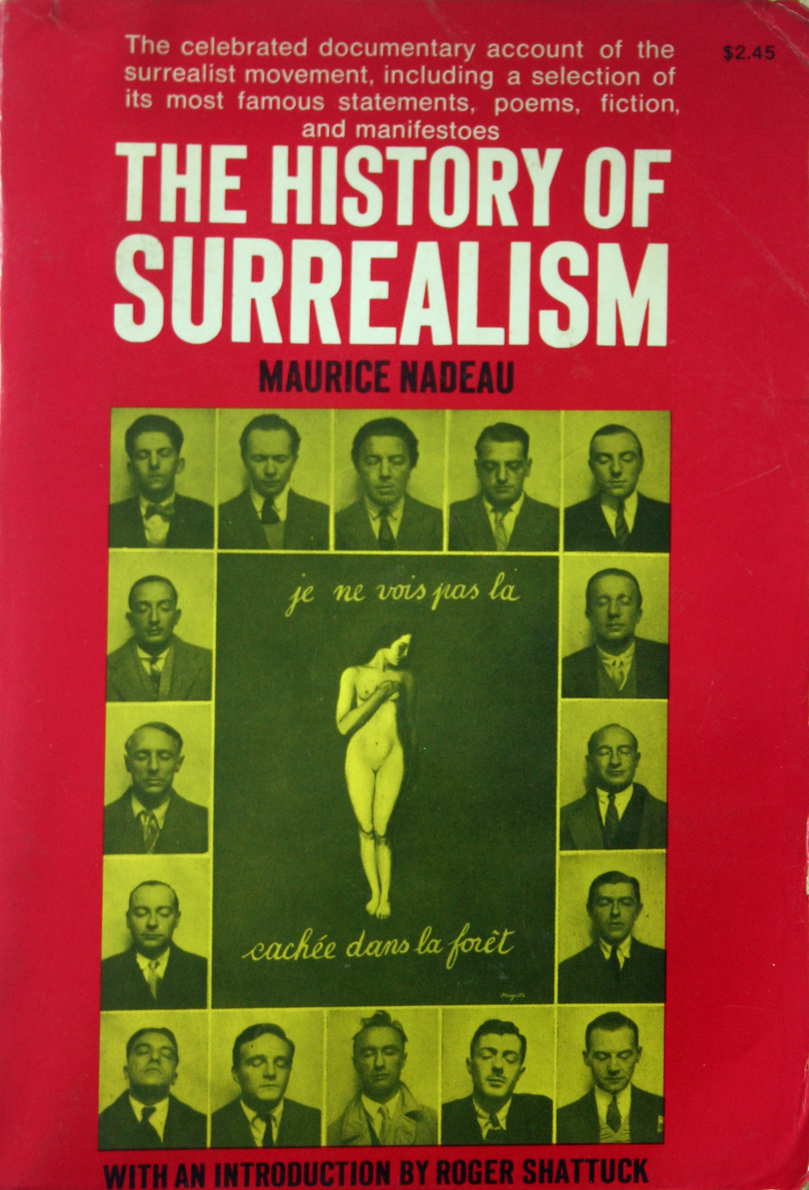
Maurice Nadeau
The History of Surrealism
(Belknap Press, 1989)
Like Richter, Nadeau was in the mix, so this also reads like a very well-informed historical memoir, of sorts. One of my favorite bits in the whole book is when Salvador Dalí is “brought to trial” by his fellow Surrealists for what they considered to be his unacceptable obsession with Hitler. (Check out Harry Chaskin’s piece on Dalí & Hitler.) Basically, it takes place at a cafe, and Dalí shows up wearing like fifteen coats, he has a fever and can barely stand, but he gives this long ass speech about why he shouldn’t be expelled from the group, and the entire time he is speaking he is taking a coat off and then another and then another. It’s a pretty amusing scene.
As far as excellent books on Surrealism, I’m also partial to Mark Polizzotti’s biography of Andre Breton, Revolution of the Mind, but that one understandably tells the story from a narrower point of view than Nadeau’s.
As well, a strong case could be made for the absolute necessity of Georges Bataille’s The Absence of Myth: Writings on Surrealism, which is less biographical and more critical/theoretical/poetical.
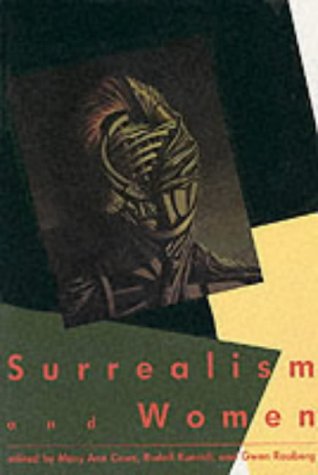
Mary Ann Caws, Rudolf Kuenzli and Gwen Raaberg, Editors
Surrealism and Women
(MIT Press, 1991)
“Headless. And also footless. Often armless too; and always unarmed, except with poetry and passion. There they are, the surrealist women so shot and painted, so stressed and dismembered, punctured and severed: is it any wonder she has (we have) gone to pieces?” Thus begins Mary Ann Caws’s introductory essay, “Seeing the Surrealist Woman: We Are a Problem.”
From the MIT Press description: “These sixteen illustrated essays present an important revision of surrealism by focusing on the works of women surrealists and their strategies to assert positions as creative subjects within a movement that regarded woman primarily as an object of masculine desire or fear.”
Indeed, this is a must-read, given that the discussion often omits women from the conversation.
Also be on the lookout this upcoming fall for a collection edited by Michael Juul Holm, Mette Marcus, Kirsten Degel, and Jeanne Rank called Women of the Avant-Garde 1920-1940, which looks awesome.
Steven Watson
Strange Bedfellows: The First American Avant-Garde
(Abbeville Publishing Group, 1991)
A few of the books on this list are unfortunately out of print. This is one of them. But it’s worth tracking down either from the library, or a used copy (the link above has copies for like $0.13 or something).
Because the US produced no A-G groups comparable to those in Europe, our own “cultural renegades” often get discussed infrequently. This book does a good job of illuminating the American scene arising between 1913-1917, giving voice to the little magazines that popped up everywhere, Alfred Stieglitz’s salon, and The Provincetown Players, amongst others. One of the great things about this book are these maps that show various connections and relationships between major and minor figures. I’m not sure why I like them so much, but I do. there are also a lot of illustrations, pictures, many I’ve not seen reprinted elsewhere. It’s written in historical/biographical fashion that would appeal to the general reader.
Paul Mann
Theory-death of the Avant-garde
(Indiana University Press, 1991)
Barrett Watten offers a helpful description of Mann’s project in the second chapter of his book titled The Constructivist Moment: From Material Text to Cultural Poetics. As Watten points out, Mann’s book is interesting because it attempts to consider the ghost of the Avant-Garde from his own historical position in the early 90s. One thing worth keeping in mind about this list of reading materials is the scope of publication dates. For instance, reading this book is a different experience than reading, say, Ortega y Gasset’s essay, the first one listed below, given its publication date of 1925, given that it was written while the A-G was still in its creation. Mann, on the other hand, writes from a place far removed from that tumultuous period.
Significant to note, going back to Shattack, Mann opens this study with a provocative chapter on ‘pataphysics, wherein he claims, “To write or rewrite a theory of the avant-garde is thus precisely to engage in ‘pataphysics: the pataphysician is the proper figure of the theorist-critic of the avant-garde” (17).
Two good companion pieces to read along with Mann’s study would be: (i) Robert Hughes’s “The Decline and Fall of the Avant-Garde,” wherein, at one point, he writes “the death of the avant-garde has…become such a commonplace that the very word has an embarrassing aura.” (ii) Hilton Kramer’s “The Age of the Avant-Garde,” where, toward the end, he writes, “If, then, the age of the avant-garde can definitely be said to have passed, as I believe it can, it is not because the will to innovation has abated its course—it has, if anything, accelerated its pace and grown more desperate—but because it no longer has any radical functions to perform.”
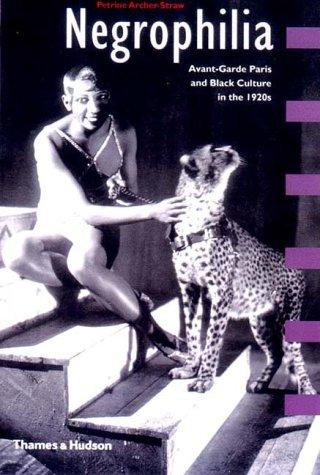
Petrine Archer-Straw
Negrophilia: Avant-Garde Paris and Black Culture in the 1920s (Interplay)
(Thames and Hudson, 2000)
Archer-Straw’s book is, like the edited collection from Caws, Kuenzli and Raaberg above, a much needed and welcome addition to the conversation. I know that when I taught a class on the historical Avant-Garde a few years ago, I struggled with the overwhelming whiteness and maleness of it all. When issues of race do come up in A-G discussions, it tends to revolve around the intersection of A-G groups and African art (“primitivism”) which is certainly worth talking about, but shouldn’t be the only thing. Thankfully, this book corrects the conspicuous absence of critical attention to issues of race in relation to the A-G. That said, there still needs to be a lot more work done in this area of the field.
Also of interest would be Lois Gordon’s recent book Nancy Cunard: Heiress, Muse, Political Idealist. I haven’t read it yet, but I’m really looking forward to it, because Cunard is such a fascinating, if terribly under-appreciated, figure who fostered significant connections between the African American communities in the U.S. and the A-G communities in Europe.
Articles, sans commentary, also listed in descending order according to publication date
José Ortega y Gasset
“The Dehumanization of Art ”
(1925)
Walter Benjamin
“Surrealism: the Last Snapshot of the European Intelligentsia”
(1929)
Clement Greenberg
“Avant Garde and Kitch”
(1939)
Rosalind E. Krauss
“The Originality of the Avant-Garde”
(1985)
Lucian Krukowski
“Hegel, “Progress,” and the Avant-Garde”
(1986)
William Gass
“The Vicissitudes of the Avant-Garde”
(1988)
Marjorie Perloff
“Dada without Duchamp/Duchamp without Dada : Avant-Garde Tradition and the Individual Talent”
(1999)
Tyrus Miller
“Avant-Garde and Theory: A Misunderstood Relation”
(1999)
Sianne Ngai
“The Cuteness of the Avant-Garde”
(2005)
Jonathan P. Eburne and Rita Felski, eds.
“What Is an Avant-Garde?” (Special Issue)
New Literary History, Issue 41, Volume 4 (2010)

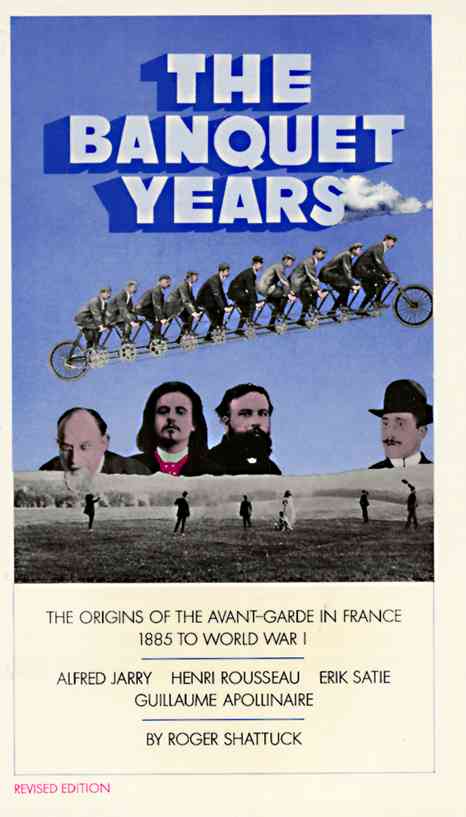
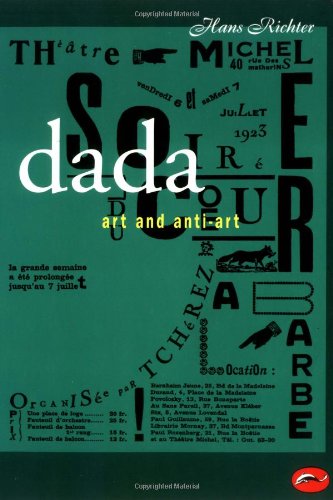
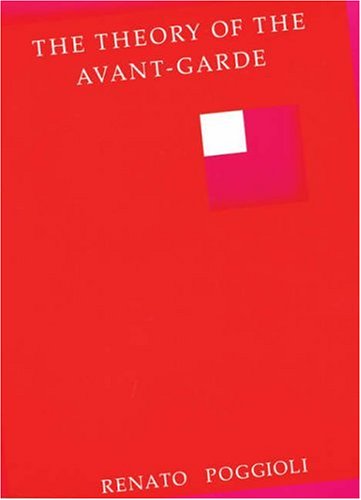
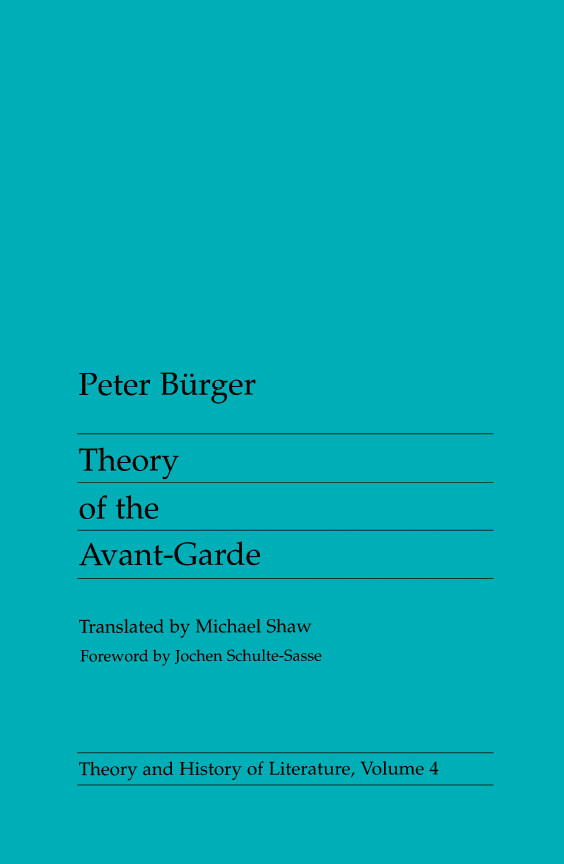
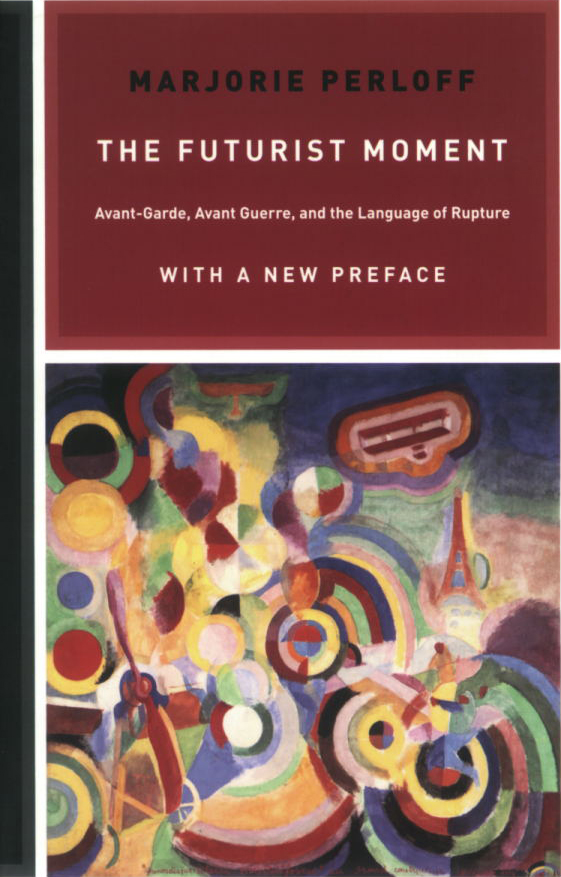
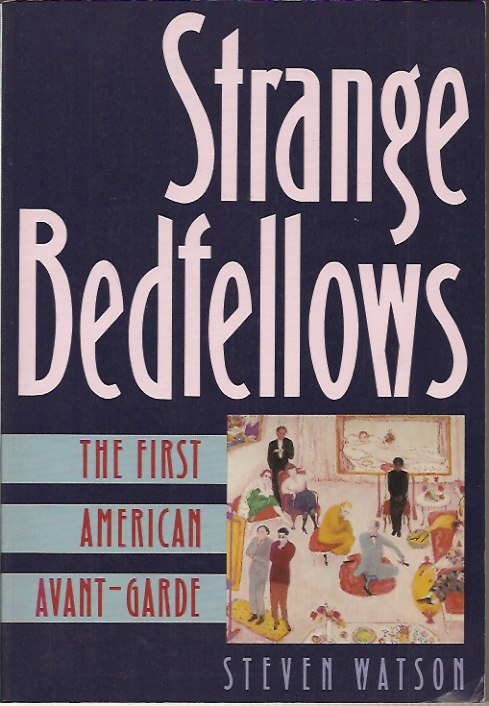
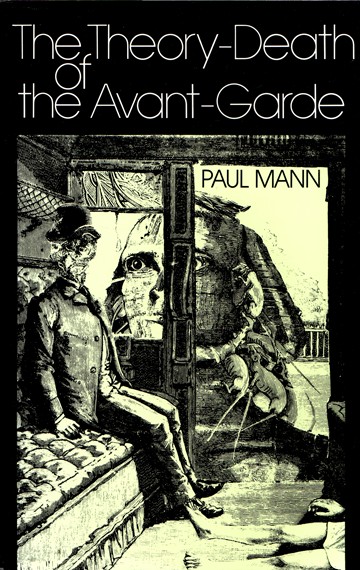
I am biased, but I think Burning City: Poems of Metropolitan Modernity really gets at the international fervor of the historical avant garde like few if any other text (or anthology), as it draws out poems from small journals across the world in the 1920s, many never before published: http://www.spdbooks.org/Producte/9780983148029/burning-city-poems-of-metropolitan-modernity.aspx
Johannes
Thanks for the heads up on this one, Johannes. I was totally unaware of it. Will put it on my to-get list.
Given that politics and art have never been separate spheres in the “avant-garde,” allow me this urgent message related to the defense of twelve U.S. writers and activists under immediate and grave threat: A group of us (seven poets from the UK and U.S.) have initiated this statement in support of the poet Joshua Clover and eleven of his fellow UC/Davis protesters, who face the outrageous possibility of eleven years in prison for peacefully occupying a branch of US Bank on the UC/Davis campus. The statement has just been featured in the New Statesman, in England (link below). A number of prominent writers are now signatories, from here, to the UK, to France, and elsewhere. Please add your name to the letter, which will continue to be circulated in different venues, by writing Danny Hayward, at dannyjhayward@yahoo.co.uk http://www.newstatesman.com/blogs/star-spangled-staggers/2012/06/protest-criminalised-pepper-spray-university
It’s imperative that strong protest be registered against this transparent attempt to intimidate and silence those who would call out the abuses of financial power.
[…] 7:00pm—8:00pm —read the Wikipedia article on “The Veldt” —tried to teach my mom how to find more specific search results on Google —watched my dad apply flea treatment on the dog —looked at HTMLGIANT and read this post by Christopher Higgs […]
Brilliant. Last night I was reading ADJ’s post, then something over at Big Other, and realized that those of us who are minus lit degree/mfa can get lost in the language regarding language. Of this fabulous list, is there one you’d recommend above all others for the reader with complete head in sand?
(ps most grateful for the listing of gender specific text as well. cheers, a)
I guess if there’s one to recommend above all others, if you just want one, and if you are completely unfamiliar, the best choice would be, I think, the one Mike Kitchell recommended on my facebook link yesterday, which is Richard Kostelanetz’s Dictionary of the Avant-Garde:
http://www.amazon.com/gp/product/0415937647/ref=as_li_qf_sp_asin_tl?ie=UTF8&tag=brightstupidc-20&linkCode=as2&camp=1789&creative=9325&creativeASIN=0415937647
It offers the widest breadth possible. That said, it’s a dictionary, so the narrative aspect you’d get from Watson, Nadeau, or Shattuck would be missing. You’d get little snippets about a wide range of topics, without the depth of coverage you’d get from one of these other more specific works. Pros and Cons, of course. Anyway, hope that helps!
It’s been a whie since I read RK’s dictionary, but I remember it seeming very 1960s-y to me. Which is fine if that’s what you’re looking for.
Johannes
Many thanks…shall add to my ever growing lists, though, perhaps I will Interlibrary that one to skim and buy the others. I figure if I’m not able to attend mfa, the least I can do is build a good research library. Look forward to future lists. ~
I’ll take the bait…care to share your top pick? (Given your credentials and interesting bio, I’d most welcome your opinion. Cheers ~ )
[…] *Intro to the Avant-Garde. HTMLGIANT […]
Well “avant-garde” changes a lot through history. So for the fervor of the international avant-garde of the 10s and 20s, Burning City is the best book. But that’s not the only avant-garde obviously. Also Motherwell’s classic “Dada Poets and Painters” is awesome for a more focused book (all about Dadaism). Black Widow Press from Boston has published an enormous amount of Surrealist books (I’m reading the amazing Joyce Mansour collected book right now). All these books are good.
Johannes
Thank you for taking the time to offer these titles. I added Burning City to my list from your previous post…it looks like I shall be checking out Black Widow Press next. ~ a
Just want to say that it’s tough to make lists like this, nobody is ever happy with them, but I think you did a really solid job, CH.
Just want to say that it’s tough to make lists like this, nobody is ever happy with them, but I think you did a really solid job, CH.
Thanks, Brent! I appreciate you saying so.